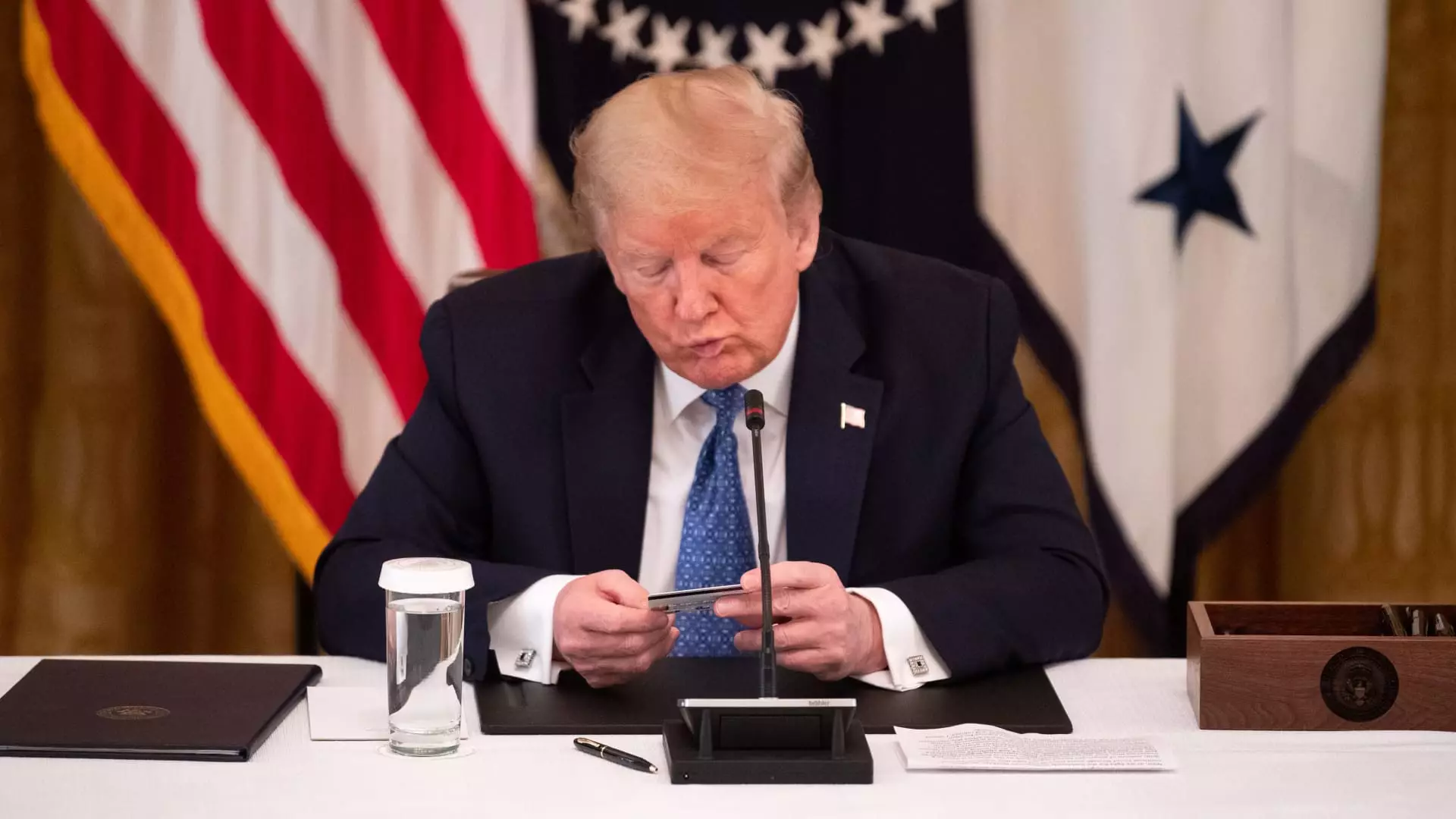The intersection of celebrity allure and cryptocurrency has once again come into the limelight with former President Donald Trump’s latest initiative, World Liberty Financial (WLF). Aimed at establishing a decentralized finance platform, WLF recently faced a tumultuous token sale launch, raising questions about its viability and the impact of its execution on Trump’s reputation, particularly with the presidential election fast approaching.
World Liberty Financial’s foray into the crypto market took place with much fanfare, including claims from co-founder Zachary Folkman of over 100,000 investors eagerly awaiting the opportunity to purchase tokens. However, the grand reveal was marred by severe technical difficulties. Notably, the WLF website was plagued by connectivity issues, leading to extended outages throughout the token sale’s critical kickoff hours. Such interruptions are detrimental to attracting and retaining potential investors, as many were left frustrated and unable to participate in what was promoted as a groundbreaking investment opportunity.
Blockchain analytics showed that merely 4,300 unique wallet addresses secured tokens, a mere fraction—around 4%—of the anticipated investor pool. With WLF reporting the sale of 532 million tokens priced at 15 cents each, several investors did manage to buy in, yet this constitutes only a paltry 3% of the overall 20 billion tokens scheduled for public sale. This underwhelming performance raises legitimate concerns about investor confidence and the sustainability of interest in the project going forward.
The WLF initiative, dubbed “The DeFiant Ones,” aligns itself with current decentralized finance trends. However, the lack of detailed communications, including a formal white paper or a comprehensive business plan, leaves much to be desired in terms of transparency. The token sale aims to achieve $300 million in funding with a projected valuation of $1.5 billion, but without clear strategic guidelines or an established framework for managing investor relations and expectations, these ambitions might be unrealistic.
Folkman, whose prior ventures have drawn attention for their less-than-stellar performance, also mentions that 20% of the total tokens are reserved for the founding team, which includes members of Trump’s family. This allocation raises further ethical questions and sentiments of mistrust among potential investors wary of the motives guiding insider investment distributions.
Interestingly, WLF’s tokens are categorized as Regulation D offerings, allowing the project to bypass the usual burdens of securities registration with the SEC. By adhering to specific stipulations, such as limiting the sale size and confining it to accredited investors—those with a net worth exceeding $1 million—WLF is navigating through a complex regulatory landscape. However, this approach may alienate many smaller, everyday investors who could otherwise be drawn to the appeal of cryptocurrencies.
The shaky launch of WLF may have broader implications for Trump’s brand, especially with just weeks left before an election. As the tension mounts in the political sphere, a misfire in the crypto market could further tarnish the public image he has carefully curated among his base. The tech space is unforgiving, and an ineffective product could contribute to a perception of untrustworthiness or ineptitude concerning Trump’s business ventures.
Additionally, this was not the only setback for Trump on the same day. Shares of his media company experienced a dramatic plummet, illustrating a disruptive trend in investor sentiment regarding Trump-related enterprises. Such financial downturns, along with the troubled crypto launch, underscore a growing urgency for credible, effective marketing strategies that encompass both transparency and reliable execution.
The future of WLF lies in its ability to recover from this rocky start. It must work diligently to restore investor confidence, remedy technical issues, and clarify its business objectives. Without decisive action, WLF could become just another cautionary tale in the sprawling saga of cryptocurrency ventures that failed to meet the promise of innovation and profit. As the landscape evolves, the success or failure of World Liberty Financial will serve as a bellwether for similar cryptocurrency efforts linked to high-profile figures, scrutinizing how celebrity and tech intersect in today’s market.

